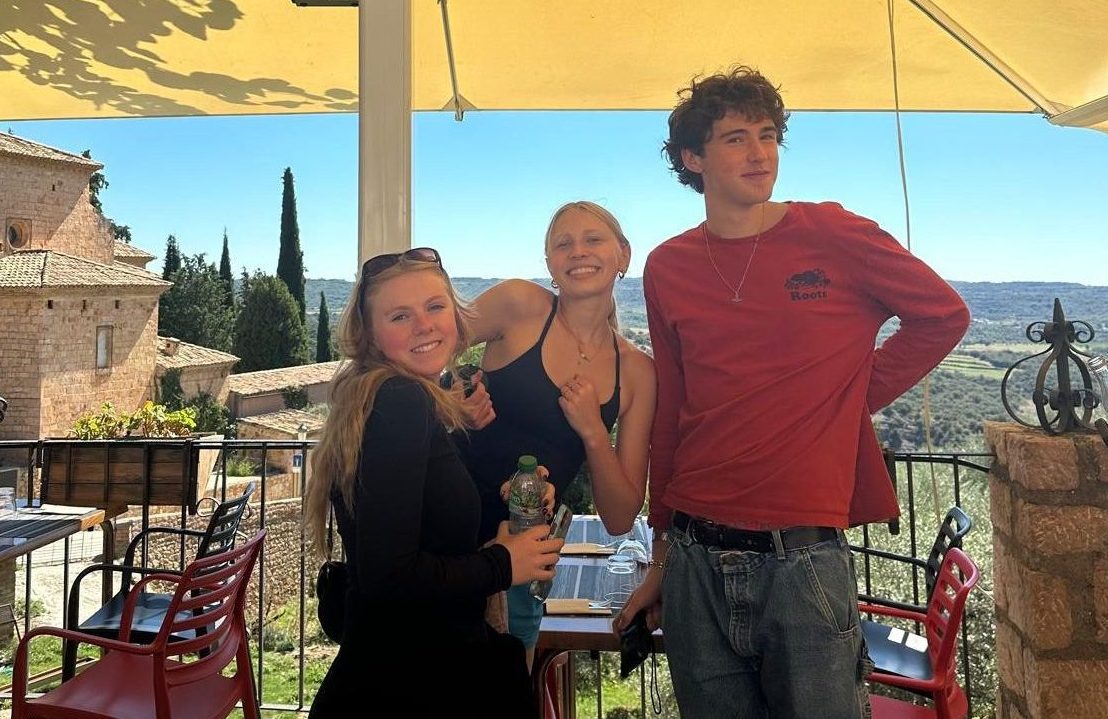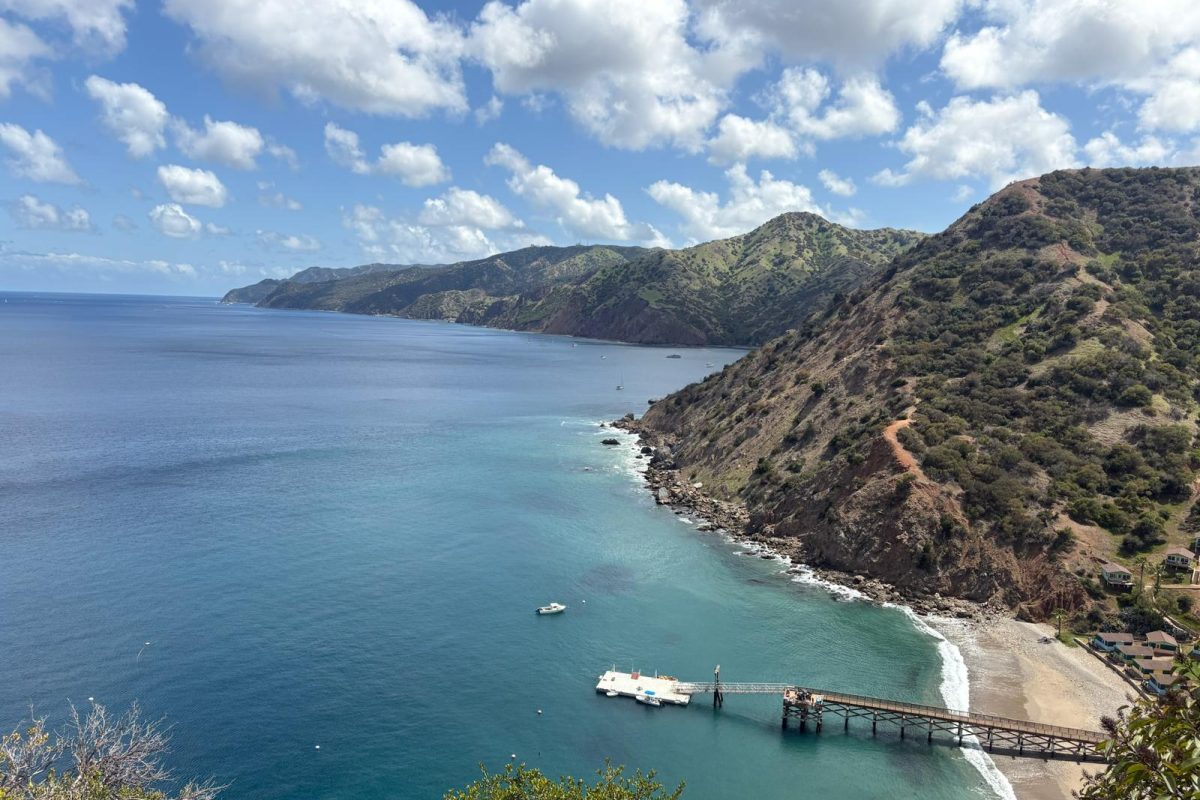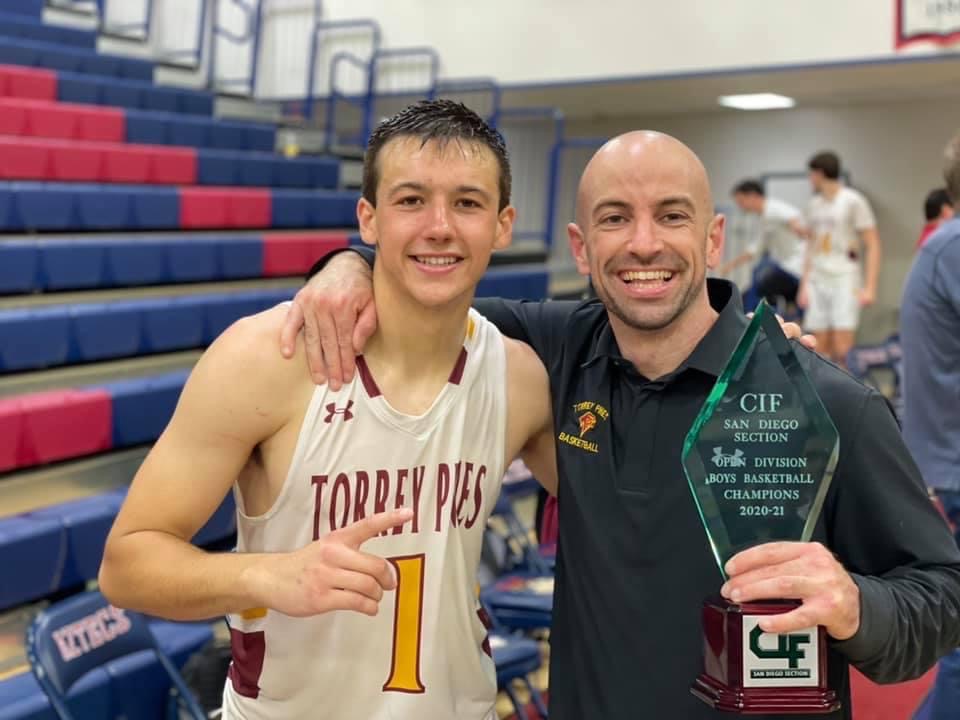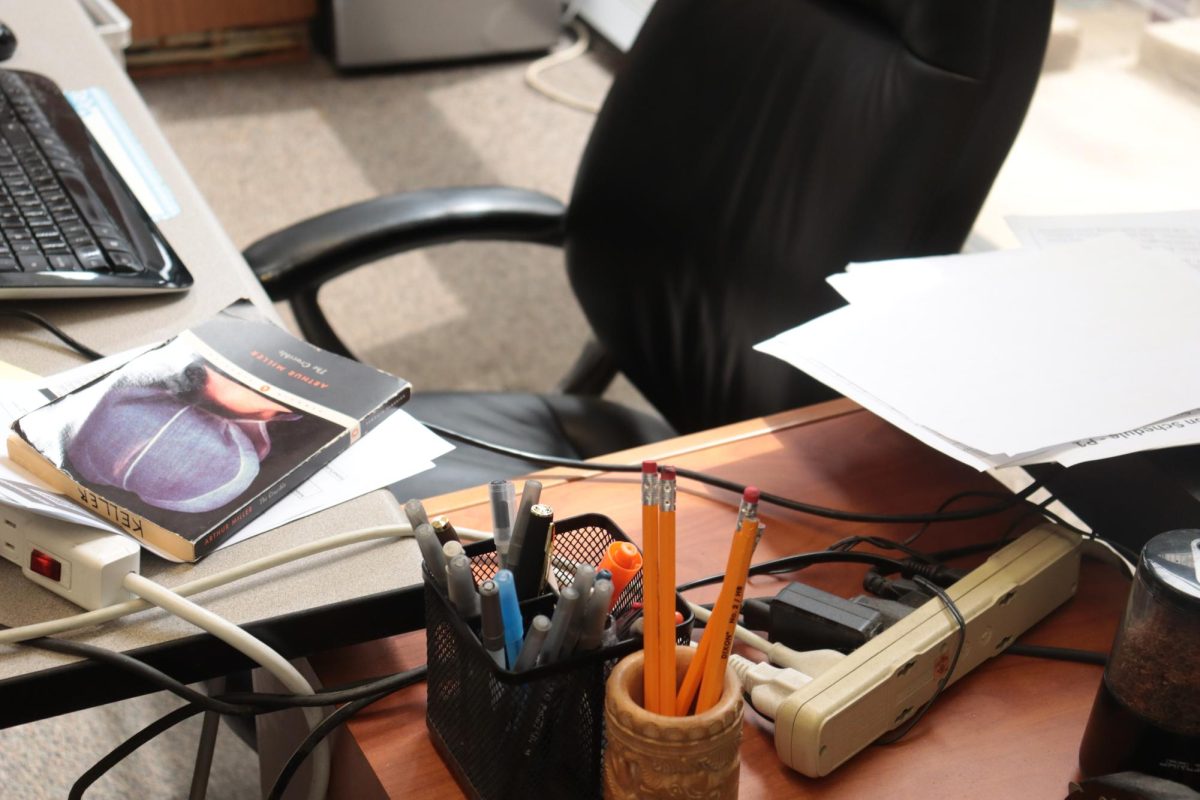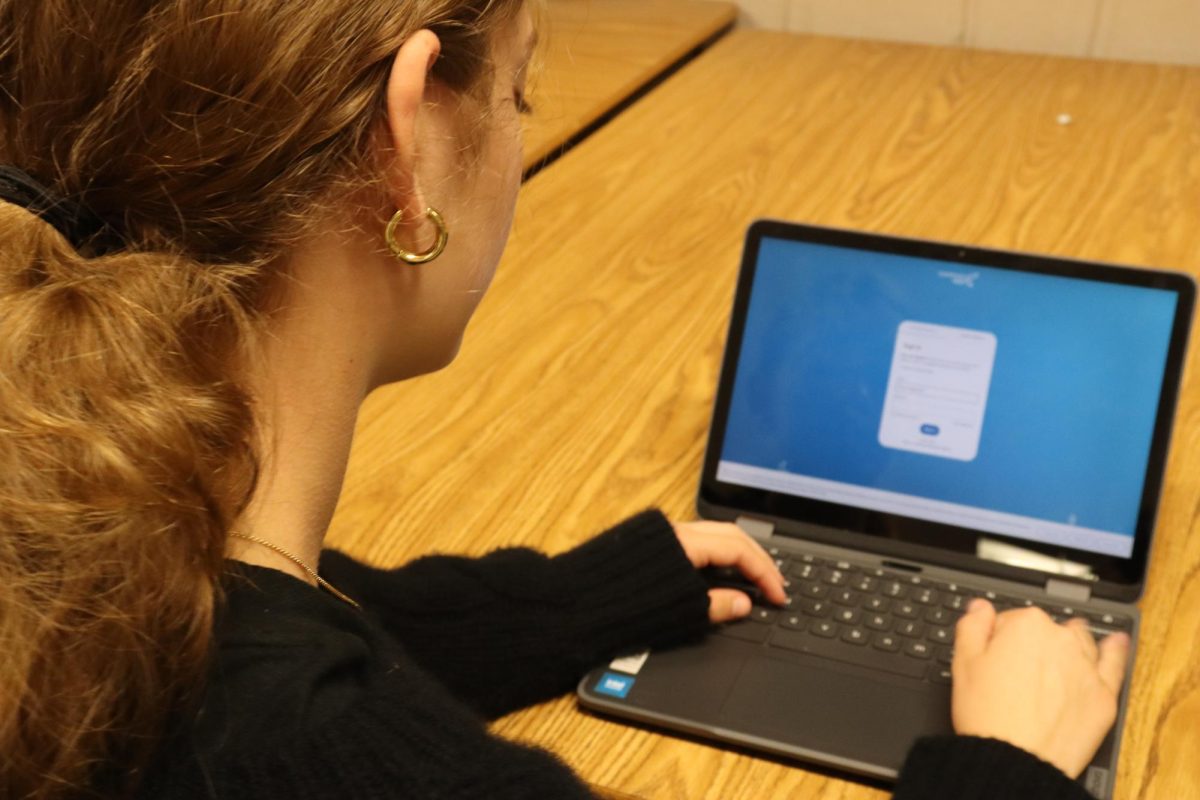One of my new teachers threw a ball of yarn at the girl next to me, muttering instructions in Spanish that got returned with confused looks from my classmates. The girl next to me somehow understood and twisted the yarn around her finger before throwing it to the student across from her. This continued for a while as I watched the ball of yarn whither slowly, along with my patience. I was the last person to get the yarn thrown to me, except the teacher cut the string right before it got to me, and I tried my best not to freak out as everyone looked at me with pity on their faces. Then my teacher handed a piece of tape to all my classmates and they taped the string together and handed it to me. My teacher then said the one phrase in Spanish that I understood, “Somos Familia.” He explained that since we’re all across the world from anything that feels secure, we are each other’s life raft. If one sinks, we all do.
The decision to study abroad in my junior year of high school was shockingly not planned. I applied on a random Tuesday in December to School Year Abroad, a sixty year old program designed to help teenagers experience the world; but I never truly internalized this decision. That was until my acceptance letter came in the mail, along with a packing list and a plane ticket set to depart in a few months. All of a sudden, the possibility of studying in Spain for a year was not just a Pinterest board or something I wrote in my journal, it was real. I clicked the accept button, and the next week I was making a bucket list for things I wanted to do before I left: one last sunset swim, brunch at Stratford Court Cafe, lazy beach day, dinner with my friends, hike with my dogs and one last hug with my family.
My expectations of arrival were quickly revealed to be just that: expectations. We got off our bus in Zaragoza, Spain and landed in an empty park with 60 host families staring back at us. It reminded me of The Hunger Games movie I’d watched on the plane ride. Sitting on wet grass, waiting for your name to be called and leaving with strangers but calling them family. I was not being led into an arena, but into a first floor apartment of a family that did not speak any English. Communication was now my largest adversary. But my biggest ally was all the students in my program. Bonding came easy when you knew the person sitting next to you could relate to you on a level that your friends or family at home could not. We were all parallels to one another, but not the same.
For Ayla Romm (11), this is not her first experience in Spain; her dad runs a summer immersion program and that’s where her love of the language and the country blossomed.
“I think putting in the work is exactly what you have to do, and you have to be proactive,” Romm said. “I think what scares me a little is letting the experience slip away. I really want to take advantage of everything.”
This is a crucial aspect of this opportunity, because as much as you have a support system and a community, it really is an individual experience — you get out what you put in. This is especially true for the relationship you have with your host family: if you put in a lot of effort, then you are going to get an incredible life long bond out of that relationship.
Walking into this program, I felt relatively comfortable in my level of Spanish, but that confidence vanished when I tried to have my first conversation with my host family. Instead, I focused on common ground such as music, cooking and dancing, putting in all the effort that I could to show them who I was without relying on my language skills.
Veronica Hatch (12) also had a different experience with her move to Spain. Hatch spent her prior semester at the Alzar School, where her curriculum was focused on outdoor leadership as they spent their time in both the Rocky Mountains and Patagonia, Chile.
“I found that [in Spain], what’s made learning Spanish so easy is that people want to help me learn Spanish,” Hatch said. “They’re excited that I want to learn their language and culture. I think that’s what truly makes the abroad experience. Wherever you go, people need to be willing to help you through that difficult conversation because even if it inconveniences them slightly, it will help your language skills so much. If you show that you want to be a part of their culture, the people here are more likely and excited to help you.”
There’s a difficult factor to this which is the acceptance of struggle. The vulnerability and acceptance of initial failure. You are going to order your coffee wrong for the first month, and you are going to get off at the wrong bus stop and have to walk 30 minutes in the rain. However this struggle has been where I’ve found all of my rewarding moments. The first ‘I made it’ moment was when I unlocked all the many doors to get to my apartment without assistance for the first time. And during my third week in the program, I asked a librarian if she had a book I was looking for and I didn’t plan my question in my head before asking it. These triumphs would be unachievable without my many failures in the process.
The SYA program also partners with a unique group of licensed therapists called the Truman Group. They established a support system for Americans living abroad, offering remote counseling with one of their hundred correspondents around the world.
“I think what is really important is for us to open ourselves up, not only to the world that’s being presented to us but to remember it’s about us,” Truman Group correspondent in Spain, Bruce Gimplin, said. “Not only look out, but look in. I think what really helps is to be able to say ‘this is a journey, literal and internal’ and to give yourself grace in this process.”
One of the aspects that make this experience so interesting is our age. Studying abroad at 16 provides a completely different experience than one would expect in college or during childhood.
“There’s some parts about studying abroad that are very isolating and you’re very self reliant in a way you never were before,” Hatch said. “There’s a lot of things that normally your parent or teacher would do for you and now that’s on your plate and you kind of have to cope with that while speaking another language, while meeting a new group of 60 students, new teachers, new curriculum, and it’s definitely a lot.”
That new feeling of responsibility is something shared between both high schoolers and college students studying abroad. TPHS alumni Amelia Gilkey (‘22) is experiencing this new responsibility firsthand during her semester in Madrid, Spain as a college junior.
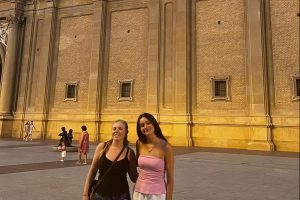
“I have gotten so independent and confident in my abilities,” Gilkey said. “I was very used to moving in a group with my friends at college because we lived together, so I always had a buddy wherever I went: the gym, to eat, in class, to the beach, the grocery store, etc. I love living with my best friends but that means I never had to do anything by myself. Now I spend the majority of my days by myself. I have developed a very important skill of finding company in myself, which allows me the freedom to do whatever I want, whenever I want, because I never have to wait for anyone to do things with me.”
Gilkey also argues that studying abroad in college is better than high school, because when she was in high school she wouldn’t have had the “maturity to fully immerse herself” and doesn’t know if she could have handled the “culture shock and isolation.”
Another drastic difference between the two adventures abroad is the experience of having a host family.
“Obviously a host family would improve your language skills but it’s also a lot of pressure,” Gilkey said. “I speak Spanish in every other aspect of my day-to-day life so it’s relaxing to be able to come home and speak English with my friends.”
Gimplin said that the experience “depends on who the person is,” but he believes that going abroad at high school age is great, because programs like SYA allow you to “practice being away” so that the transition to college and adulthood is easier.
However, with this heavy responsibility can get in the way of the experience for those who don’t know how to handle it.
“I think going abroad in high school is a really formative and cultivating experience, and what I’ve found here is that the high school mindset has somewhat gotten in the way of the enriching part of this experience,” Romm said.
On the other side of the scale, Paige Altabriar (11) moved to Sevilla, Spain in fifth grade for three months with her family and completed online school there.
“This experience [studying abroad now] is totally different because when I was here in fifth grade I was living here with my family and had significantly less responsibilities, but here I’m living with a new family in a new place and it feels like such physical maturity,” Altabriar said.
Talking about her education in Sevilla, Altabriar says that her parents really wanted to “push the boundaries of classroom walls” and she was glad they did that because now she sees learning from “an entirely different perspective.”
This idea of experiential learning is one of the main pillars of SYA’s curriculum. Every Wednesday we do ‘Trabajo de Campo,” which is a day where we stop our regular classes and go out and explore the city or immerse ourselves into the community.
Hatch had a similar experience with experiential learning at the Alzar School: when she was not understanding the idea of the pulley system in her physics class, her teacher decided to demonstrate it. Hatch climbed into a kayak and pretended to flip and be stuck in between two rocks so that she would need to be rescued. Her teacher tossed her a rope and created a Z-Drag system, a pulley system commonly used for rescue, and that’s when the idea really clicked for her. She reflected that because of this experiential learning, she ended the year with a higher grade in physics than she thought was possible.
“That’s something that can’t be replicated inside a classroom,” Hatch said. “Having a conversation with someone who doesn’t speak English and you don’t speak spanish at a high level, it’s an entirely different way to push yourself and that’s a very self-selecting thing. Not everyone chooses to put themselves through something like this, not everyone has the desire to put themselves into something so challenging.”
Even those who signed up for this program couldn’t have anticipated how difficult it is to not be understood, no matter how hard you try. It’s something that is very unique, and arguably the most character building struggle I’ve experienced while being here. However, through this, I’ve also acquired the most incredible support system of both family and friends.
“One of the things that being an expat has taught me is that even though our language might be different and the time we eat dinner might be different, we all still eat,” Gimplin said. “We all still take care of ourselves and have families and in that way we are all the same.”

